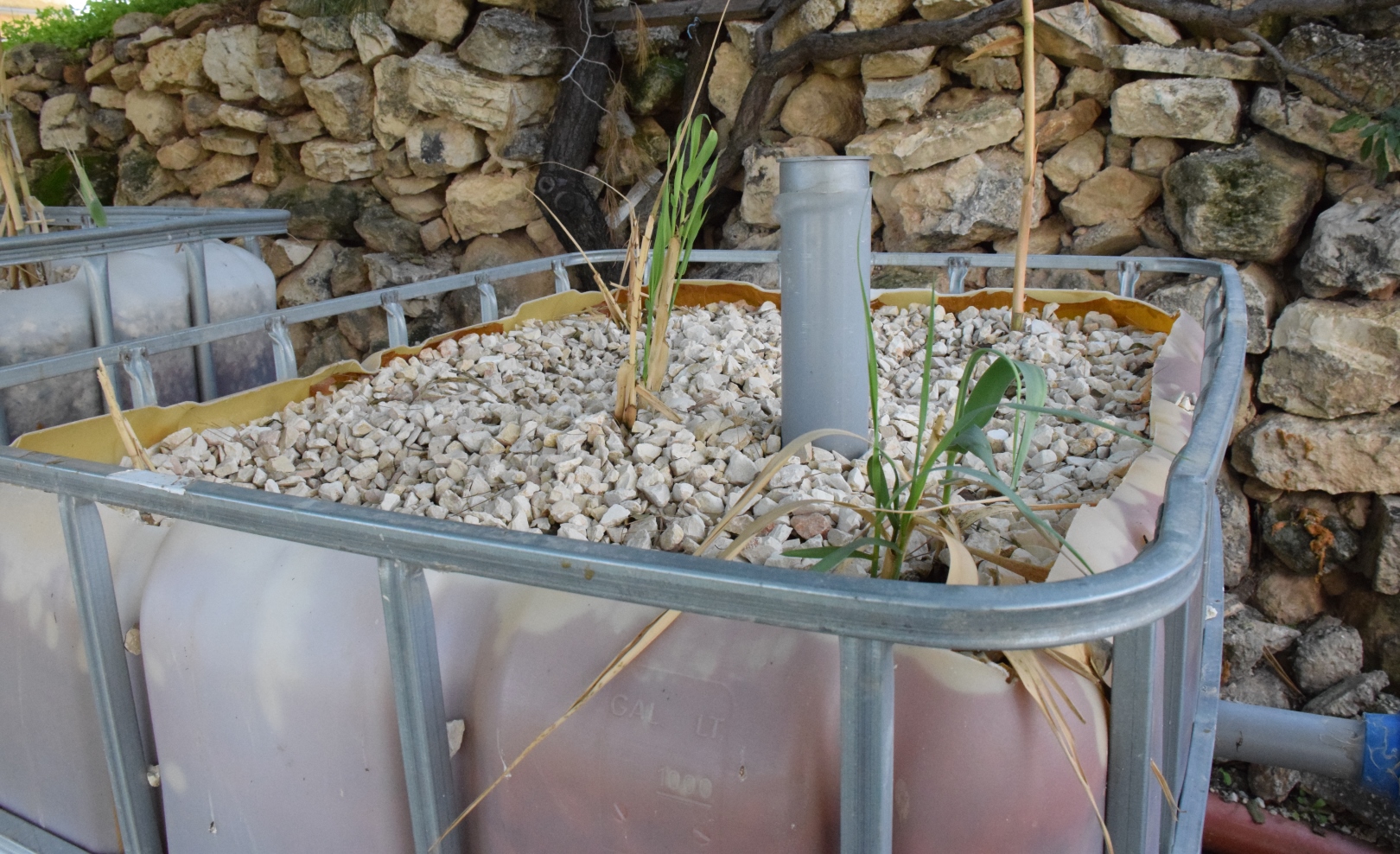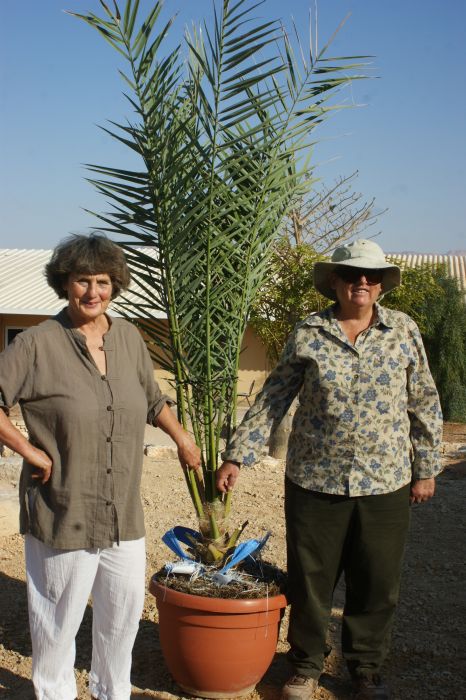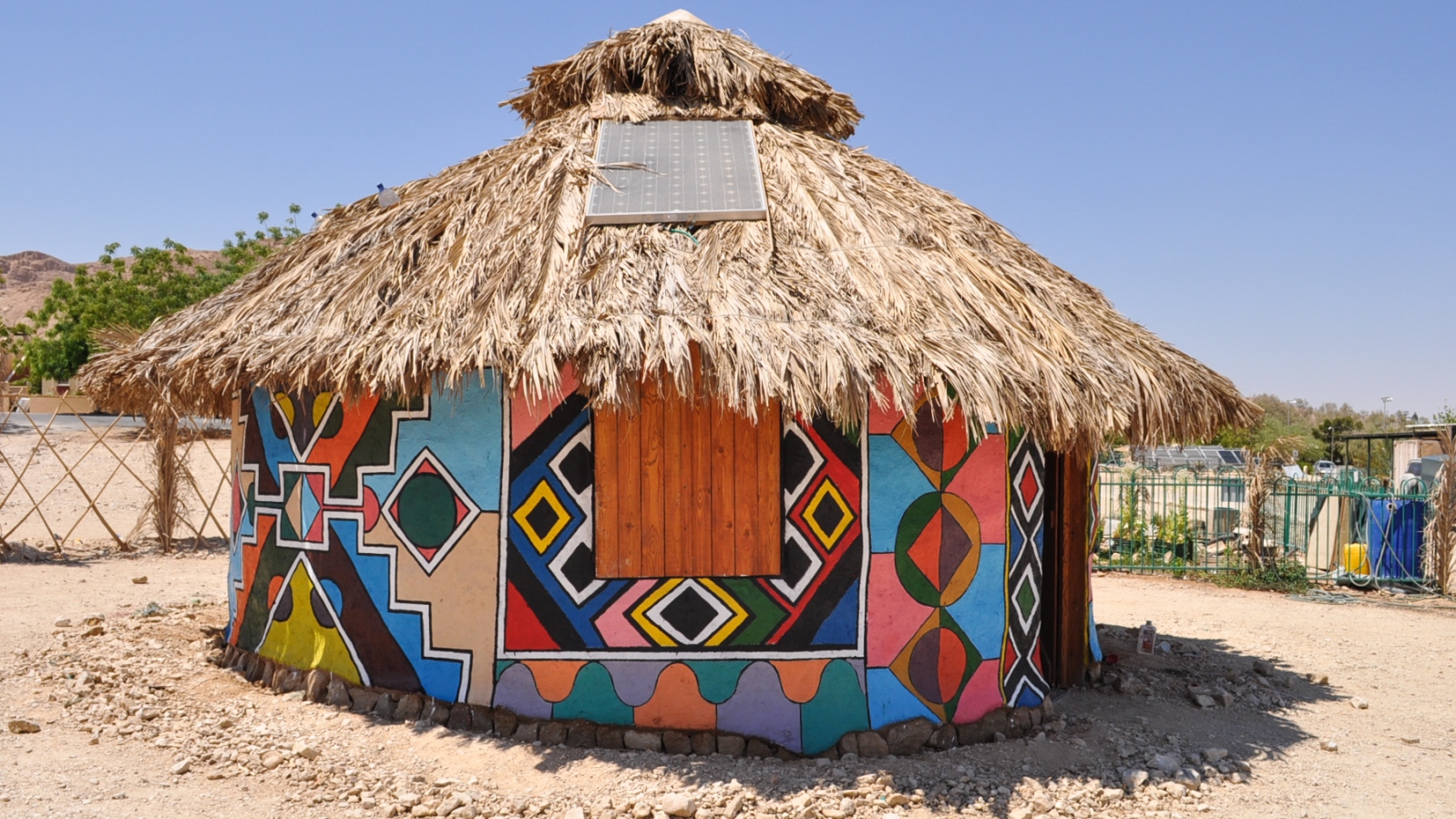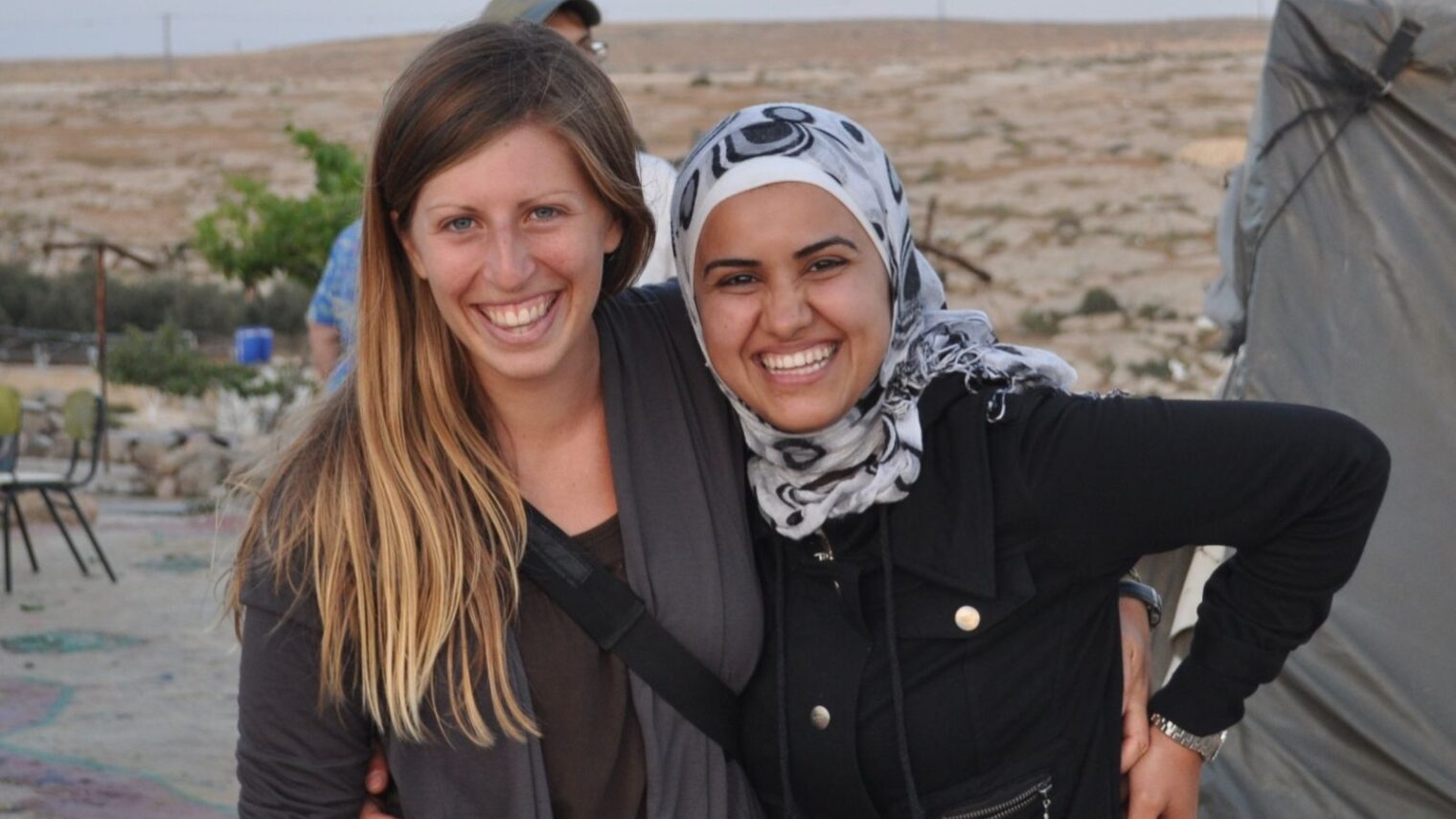On Kibbutz Ketura in Israel’s Arava desert, more than 800 students from Israel and other countries have torn down barriers over the past two decades to find cooperative solutions for regional environmental challenges.
This year, the non-profit Arava Institute for Environmental Studies is sponsoring concerts, conferences and public forums in celebration of its 20th anniversary of innovative environmental and peace-building work.
“The Arava Institute is the only academic program in the Middle East to provide a balanced student body of approximately 40 students — one-third Jewish Israelis, one-third Palestinians and Jordanians and one-third international students each semester — with the theoretical knowledge and practical skills needed to inspire Israeli-Arab environmental cooperation,” says Deputy Director Eliza Mayo.
Considered one of the top environmental think tanks in the world, the Arava Institute recently was a semifinalist in the Hero Award by Billion Acts of Peace, a UN-supported initiative.
The institute’s founders, Alon Tal and Miriam Sharton, envisioned creating cross-border environmental cooperation while “transforming misperceptions into meaningful friendships that transcend traditional political and religious divides,” Mayo tells ISRAEL21c.
“We set ourselves a specific goal to train and educate young adults to go out into the world using the environment as a tool for dialogue and dialogue as a tool for improving the environment in the region,” she says.
“In our anniversary year, we’re celebrating that we have done just that — through wars and intifadas, during which other initiatives have come and gone. We stick with it and work together because of our emphasis on respectful academic disagreement and on hearing other narratives and using that ability to improve the environment.”
“We train and educate young adults to go out into the world using the environment as a tool for dialogue and dialogue as a tool for improving the environment in the region.”
Accredited through Ben-Gurion University of the Negev and headed since 2003 by David Lehrer, the Arava Institute runs academic programs, research centers and international collaborations supported by an American Friends organization, foundation grants and research grants from the European Union, the Israeli government, United States Agency for International Development (USAID) and other sources.
Here, ISRAEL21c takes a look at five significant projects of the Arava Institute to improve both the environment and human relations.
1. More water for off-grid communities
From 2013 to 2015, the Arava Institute’s Center for Transboundary Water Management ran a USAID-funded project to construct decentralized graywater recycling systems and develop a multi-player regional wastewater treatment network.
The main goal was to protect freshwater sources and find a low-cost, low-maintenance, socially acceptable and widely replicable sanitation solution to reduce wastewater pollution while increasing irrigation water supply to off-grid households and communities in Israel and Palestinian Authority-administered areas.
“Dr. Shlomo Kimchie’s design, consisting of a series of modular units filled with gravel, emphasizes the use of local materials and requires minimal electricity, as it is dependent on the natural forces of gravity for treatment,” according to the institute. “These systems were also designed to be scalable, allowing for their implementation in single-family homes or entire neighborhoods.”

The gravel acts as a filter and a medium for bacteria to grow. The bacteria then break down and consume chemical and organic components in the water. Water quality improves as it flows from one unit to the next. If necessary, pretreatment and posttreatment elements can be added, such as settlement ponds or chlorine to remove any additional pathogens.
According to the institute, graywater treatment and reuse for irrigation can reduce domestic water consumption by up to 40 percent, lower water costs and lessen pressure on central wastewater treatment plants.
2. Peace-building Leadership Seminar (PLS)
The Arava Institute’s PLS is a weekly required component for all students each semester, consisting of facilitated discussions on race, religion, culture, identity and politics, as well as workshops, guest lectures and field trips.
It was started in 1999 after administrators saw that although the students were living together in the same dormitories, they stayed mostly within their ethnic or national circles and avoided serious discussions with students from other groups.
“We understood the need to add a supervised forum to the academic program, aimed at giving the students a platform to address these issues as well as broadening their general understanding and exposure to coexistence initiatives and models of conflict transformation,” says Mayo.
She says the PLS program “has proven extremely effective in enhancing respect and cultural understanding. Leaders who emerge from PLS are better equipped to navigate the cultural and political differences that influence environmental, social and political collaboration. Today there is a strong and growing network of Jewish and Arab alumni working cooperatively toward dialogue, peace and protecting their shared environment in the Middle East.”
3. Experimental orchards
California native Elaine Solowey, director of the Arava Institute’s Center for Sustainable Agriculture, made international headlines in 2005 when she successfully sprouted a date palm from a 2,000-year-old date seed found during archeological excavations at Masada in the 1960s.
The male tree, named Methuselah for the long-lived biblical character, has since sprouted three offshoots that will be removed and grown separately.
Solowey established an experimental orchard 35 years ago to provide material for research and exploration of new applications in botanical medicine, renewable energy and sustainable agriculture. She was given the precious date seed by Dr. Sarah Sallon, director of the Louis L. Borick Natural Medicine Research Center of the Hadassah Medical Organization.

In August 2015, the Israel Nature and Parks Authority named Solowey’s Experimental Orchards – now a part of the Arava Institute — an official Shelter Garden for Endangered Plants. It contains hundreds of plant varieties to enable the study of medicinal herbs, crops that can be grown in arid and saline soil, and plants that can be cultivated for biofuel.
Solowey is now nurturing six more date trees from ancient seeds in the Experimental Orchards. If one proves to be female, she will use pollen from Methuselah and his offspring to fertilize the female fruit.
4. Off-Grid Demonstration Village
A vacuum-tube solar oven; a “power pot” whose boiling water charges phones; a solar cooker; an off-grid solar-powered alarm system; a compact and lightweight solar generator; and a biodigester that converts organic waste and animal manure into usable energy for cooking, heating and other household needs.
You can find all these experimental technologies in the unique Off-Grid Demonstration Village at the Arava Institute, pioneered jointly by the Arava Center for Sustainable Development and the nonprofit Eilat-Eilot Renewable Energy Initiative.

Volunteers from Kibbutz Lotan’s Eco-Building Program constructed three different structures for this first-of-its-kind demo village: a common building found in rural, developing regions; a building that simulates an urban communal area such as a makeshift schoolhouse; and an innovative earth-bag dome structure that can be swiftly and inexpensively assembled.
The various technologies installed in the structures are studied for their viability and effectiveness as potential game-changing sustainable-development solutions for underserviced, off-grid populations.
5. Alumni Innovation Program
In 2015, the Arava Institute inaugurated an Alumni Innovation Program to make it easier for past students, interns and employees to engage in cross-border and cross-cultural business and social endeavors based on mutual environmental concerns.
The first five projects currently are being chosen from a dozen applicants. Those selected will receive mentoring and seed funding. Each one will involve either Israelis and Palestinians or Jordanians, or Israeli Arabs and Jews.
Mayo says the chosen initiatives will be both environmentally sustainable and financially sustainable – for profit or nonprofit — and have measurable goals that can be achieved within a specific timeframe. “Preference will be given to initiatives that are partnered with local NGOs or companies in the target community,” she says.
For more information, click here
















